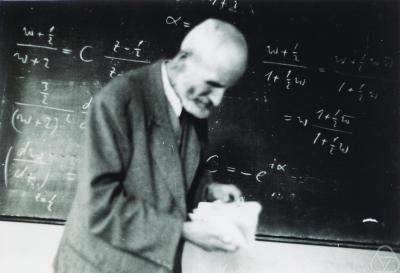Hey Steemians,
I was considering to write about a series of (mathematical) paradoxes and related questions because they provide a great way to illustrate the intricacies of logic and scientific thinking in general.
But since I am not yet sure about the extent of this project let's start with a short one which is originally due to German mathematician Orkar Perron.

Jacobs, Konrad, Oskar Perron, CC BY-SA 2.0 DE
It is an educational reflection of typical issues arising in the attempt to solve partial differential equation or variational or optimization problems and goes like this:
Let N be the largest integer. If N>1, then N²>N, which is a contradiction to N being the largest integer. Therefore N=1 has to be the largest integer.
While the logical conclusion above is correct, we know clearly that N=1 is not a (or the) largest integer. But where did we go wrong?
In fact Perron's paradox lies in the faulty assumption of there existing a largest integer to begin with. The set of integers does not have a maximal element with respect to the relation "<" i.e. "greater than" since you may alway find a larger one, e.g. N+1.
As the paradox demonstrates, it is important to understand that -at least to mathematicians- proving the existence of a solution to a problem is no less significant than finding an actual solution (and in many cases just as hard).
Wikipedia: Oskar Perron
Thanks for sharing , your post is very valuable and handy
Upvoted !
By the way ,I started following you and I would appreciate your follow back too .
please visit my blog and vote me too